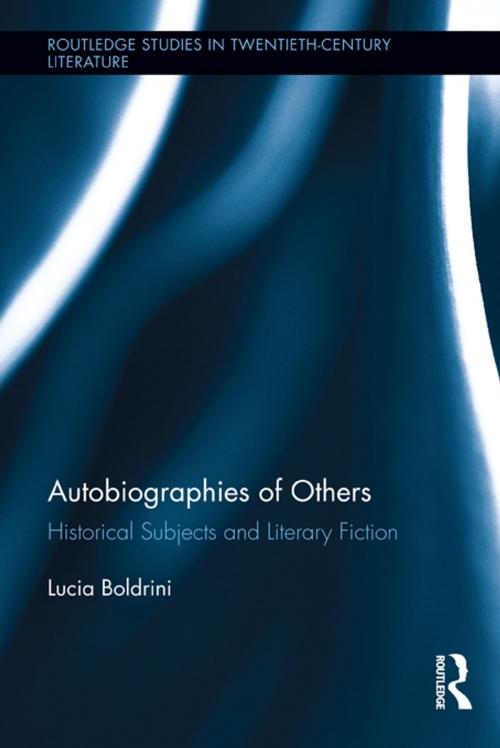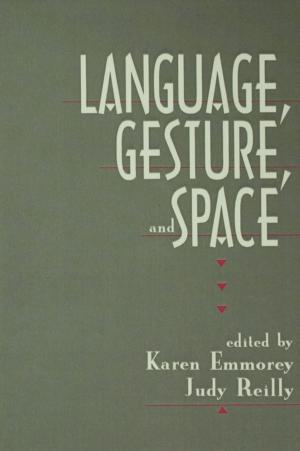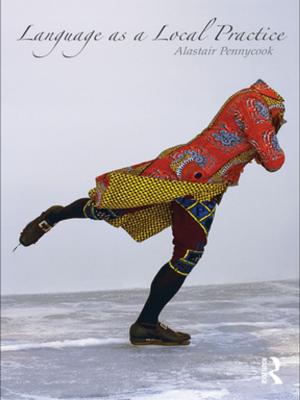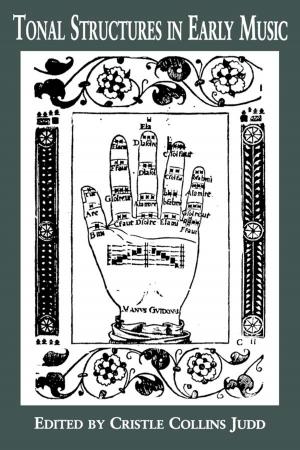Autobiographies of Others
Historical Subjects and Literary Fiction
Biography & Memoir, Literary, Fiction & Literature, Literary Theory & Criticism, Nonfiction, History| Author: | Lucia Boldrini | ISBN: | 9781136283253 |
| Publisher: | Taylor and Francis | Publication: | August 21, 2012 |
| Imprint: | Routledge | Language: | English |
| Author: | Lucia Boldrini |
| ISBN: | 9781136283253 |
| Publisher: | Taylor and Francis |
| Publication: | August 21, 2012 |
| Imprint: | Routledge |
| Language: | English |
In this volume, Boldrini examines "heterobiography"—the first-person fictional account of a historic life. Boldrini shows that this mode is widely employed to reflect critically on the historical and philosophical understanding of the human; on individual identity; and on the power relationships that define the subject. In such texts, the grammatical first person becomes the site of an encounter, a stage where the relationships between historical, fictional and authorial subjectivities are played out and explored in the ‘double I’ of author and narrating historical character, of fictional narrator and historical person. Boldrini considers the ethical implications of assuming another’s first-person voice, and the fraught issue of authorial responsibility. Constructions of the body are examined in relation to the material evidence of the subject’s existence. Texts studied include Malouf’s An Imaginary Life, Carey’s True History of the Kelly Gang, Ondaatje’s The Collected Works of Billy the Kid, Adair’s The Death of the Author, Banti’s Artemisia, Vázquez Montalbán’s Autobiografía del general Franco. Also discussed, among others: Yourcenar’s Memoirs of Hadrian, Tabucchi’s The Last Three Days of Fernando Pessoa, Giménez-Bartlett’s Una habitación ajena (A Room of Someone Else’s).
In this volume, Boldrini examines "heterobiography"—the first-person fictional account of a historic life. Boldrini shows that this mode is widely employed to reflect critically on the historical and philosophical understanding of the human; on individual identity; and on the power relationships that define the subject. In such texts, the grammatical first person becomes the site of an encounter, a stage where the relationships between historical, fictional and authorial subjectivities are played out and explored in the ‘double I’ of author and narrating historical character, of fictional narrator and historical person. Boldrini considers the ethical implications of assuming another’s first-person voice, and the fraught issue of authorial responsibility. Constructions of the body are examined in relation to the material evidence of the subject’s existence. Texts studied include Malouf’s An Imaginary Life, Carey’s True History of the Kelly Gang, Ondaatje’s The Collected Works of Billy the Kid, Adair’s The Death of the Author, Banti’s Artemisia, Vázquez Montalbán’s Autobiografía del general Franco. Also discussed, among others: Yourcenar’s Memoirs of Hadrian, Tabucchi’s The Last Three Days of Fernando Pessoa, Giménez-Bartlett’s Una habitación ajena (A Room of Someone Else’s).















